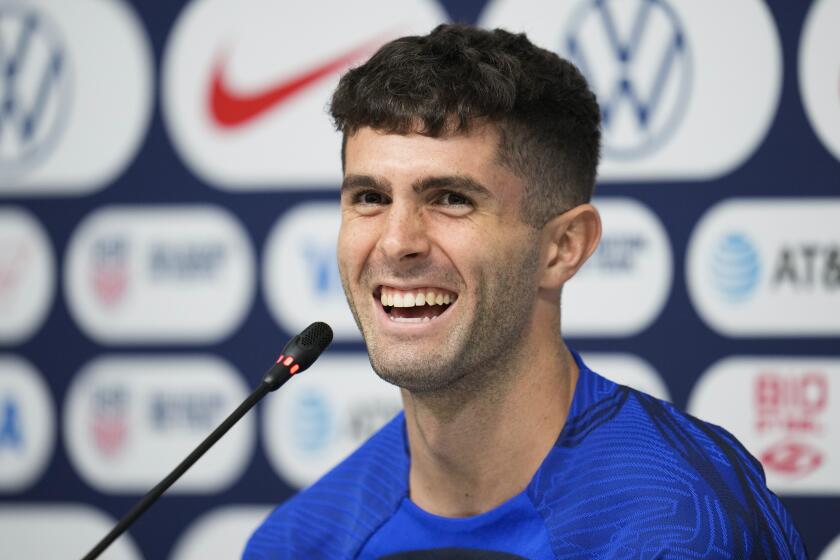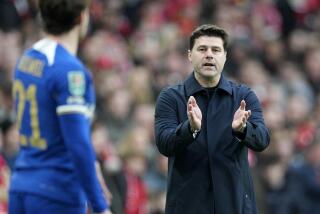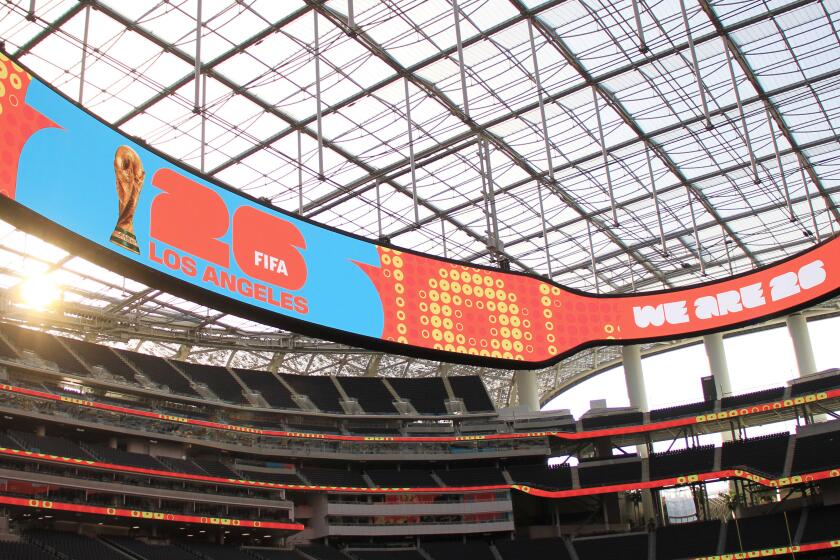The Dutch taught Gregg Berhalter about soccer. Now his U.S. team aims to beat them
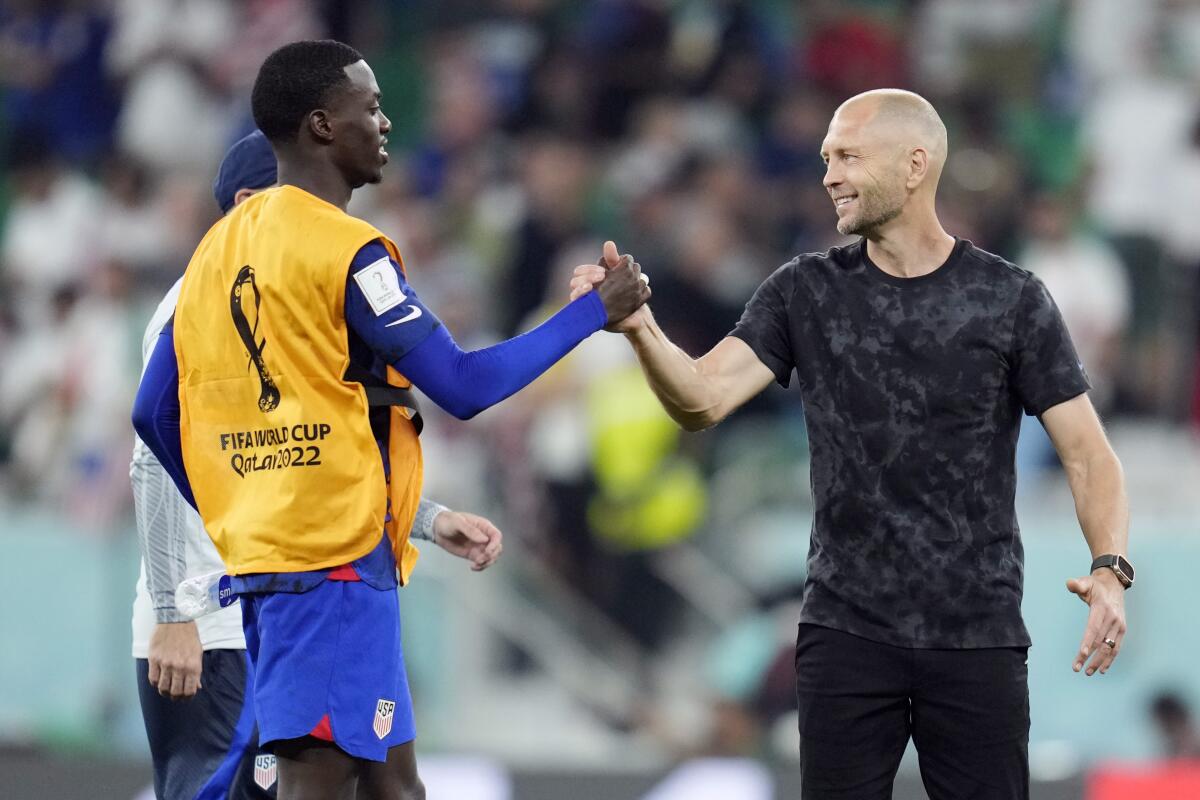
DOHA, Qatar — The education of Gregg Berhalter began at an elite boarding school in New Jersey and continued at the University of North Carolina. And while that book learning was fine and all, neither school taught Berhalter the subject he really wanted to study, which was soccer.
So he left college a year short of a degree for a kind of study-abroad program in the Netherlands. He didn’t get a degree there either, but what he learned changed his life and might have altered the direction of U.S. Soccer for the better.
Whether it works out as well for the Dutch will be determined Saturday when Berhalter, now coach of the U.S. national team, applies what he absorbed against the Netherlands in a World Cup knockout game.
“I learned so much in Holland,” said Berhalter, who played more than 100 games for three clubs in the Netherlands in the 1990s. “That was a great experience being there. After every game you talk with people about the game. People love to discuss soccer and you really learn a lot.
“If I wasn’t in Holland, I don’t think I would have had that building that really helped shape my ideas.”
The American team’s Dutch pedigree goes far deeper than just its coach, however. Earnie Stewart, U.S. Soccer’s sporting director, was born in the Netherlands and played 15 seasons there before retiring to become technical director and later director of football affairs for two first-division Dutch clubs. Midfielder Christian Pulisic, who was cleared to play Saturday after a painful pelvic bruise he suffered against Iran, tried out for a Dutch team and nearly signed there when he was a teenager. And outside back Sergiño Dest, who was also born in Holland and has a Surinamese-American father, was heavily recruited by the Dutch national team before Berhalter convinced him to play for the U.S.
Now he’ll be starting against his homeland in a World Cup.
But, Berhalter stressed Friday, this isn’t homecoming week. It’s a business trip.
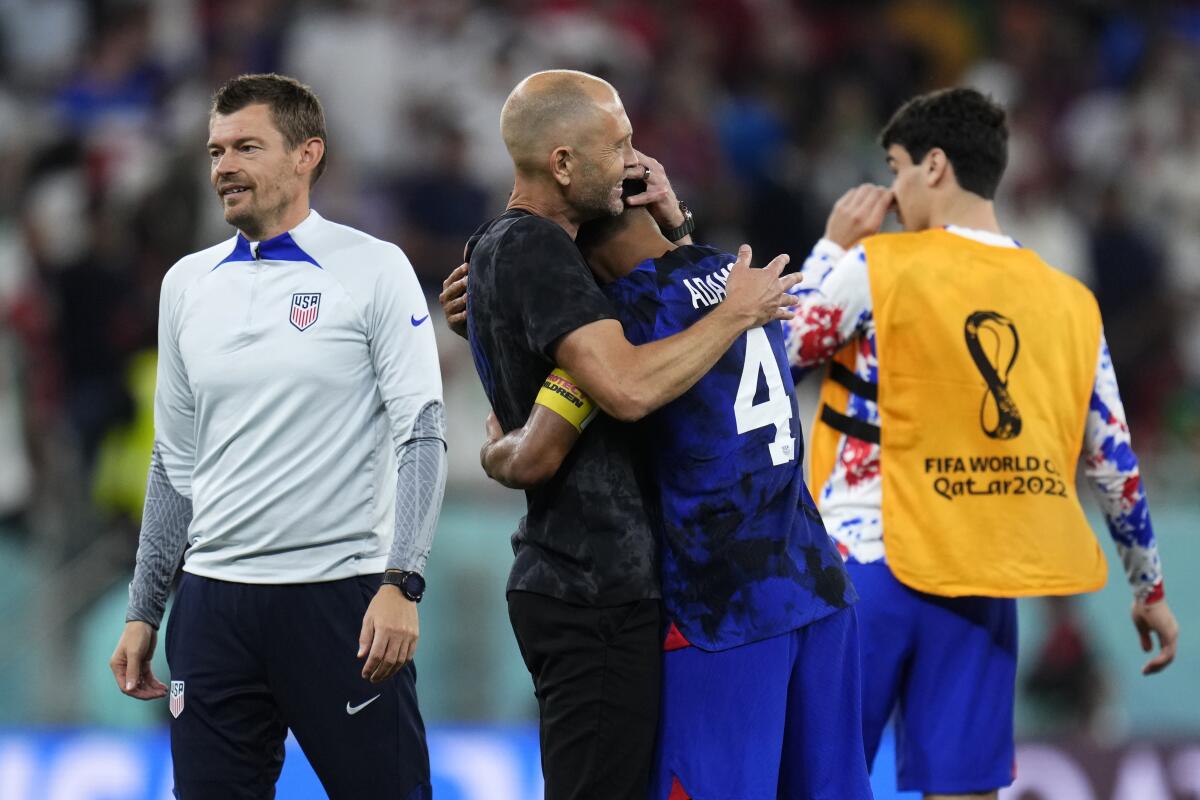
“It’s nice to have some history, it’s nice to have a connection,” said Berhalter, who took a question at Friday’s news conference in Dutch. “It is nice to see some familiar faces, get some text messages from friends back in Holland. But [Saturday] night’s all business.”
It‘s serious business because a win would lift Berhalter’s young, unbeaten team into the World Cup quarterfinals, a height the U.S. has reached only once in the modern era. For the Dutch, who haven’t lost since Louis van Gaal returned as manager 18 games ago, a victory would move them within a win of the semifinals, where Van Gaal took them in 2014, the last time the team played in this tournament.
Van Gaal and Berhalter have met before, by the way, although the Dutch coach feigns amnesia. Van Gaal spent his entire playing career and most of his coaching career in the Netherlands, where he managed against Berhalter the player more than once. Asked about a notable game his powerful Ajax team lost to Berhalter’s struggling Sparta Rotterdam, Van Gaal scoffed.
“Do you really think I remember? No, I don’t remember that match,” he said.
Two days after suffering a pelvic bruise, USMNT star Christian Pulisic isn’t sure about his playing status Saturday against the Netherlands.
Berhalter questioned the coach’s memory
“I don’t think that’s true. Being that competitive, he has to remember that,” he said.
Berhalter, 49, certainly hasn’t forgotten his time in Holland. That’s where he signed his first pro contract, and by the time he got there he had already played in a U-20 World Cup and was on his way to the senior national team. He thought he knew soccer.
He quickly learned otherwise.
“I went to Holland just out of university totally unprepared for professional-level soccer,” he said.
The attention to detail in the Netherlands, for example, was something he’d never experienced in the U.S. One player complained that Berhalter, a defender, delivered passes that had too much spin on them, so he spent hours learning to kick the ball with the laces of his boot instead of the instep. Other teammates would scream if he directed his passes to their weak foot instead of their strong one.
“There was a lot of details that I was missing in college that I learned in Holland,” he said. “And then, you know, the general side of the game. How they open the field, stretch the field, and really made it difficult for the opponent.”
How much of that has Berhalter applied?
Well, his preferred 4-3-3 formation was pretty much invented by the Dutch. The Americans push their speedy wingers forward, make the field as wide as possible, and have the courage to play out of the back. The style couldn’t be more Dutch if it wore wooden shoes and carried tulips.
“Just about spacing, the positional game, third man triangles,” Berhalter added about what he learned. “You know, all of those things like the details of the game.”
Details that just might lead to the Dutch’s undoing Saturday. And if that happens, they’ll only have themselves to blame.


